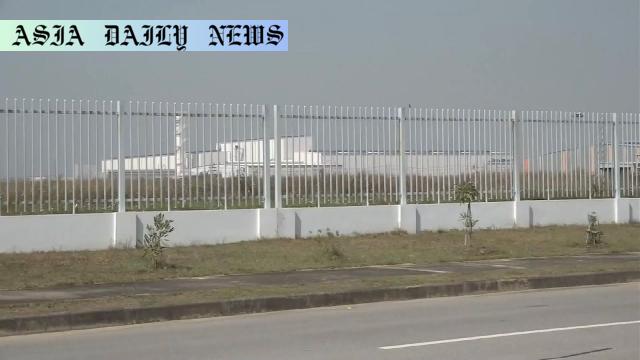Myanmar faces economic turmoil as Japanese firms exit following a military coup and worsening business environment.
Japanese firms like Sumitomo and Toyota Tsusho are pulling out of Myanmar.
The military coup has resulted in economic decline and human rights violations.
Kirin and Eneos Holdings exited earlier due to worsening conditions.
Concerns over military ties and violence have led to international scrutiny.

Japanese Firms Leave Myanmar: The Bigger Picture
Myanmar’s economic and social landscape has faced relentless challenges since the military coup in 2021. Political instability, escalating violence, and the deteriorating business climate have compelled several international companies, including prominent Japanese firms, to exit the country. For decades, Myanmar was seen as a lucrative market by global corporations due to its strategic position in Southeast Asia and emerging economy. However, the abrupt shift in political power has led to widespread unrest, disrupting businesses and posing concerns over ethical investments.
Recently, the decision by Sumitomo Corporation and Toyota Tsusho to liquidate their joint venture managing a port near the Thilawa Special Economic Zone underscores the gravity of the crisis. The economic zone, located near Yangon, once promised significant trade and development benefits. Yet, the unrest and allegations of military ties have raised doubts about its sustainability. Moreover, the involvement of local logistics firms allegedly linked to Myanmar’s military compounds these challenges, making international firms wary of their association in the region.
Impacts on Investment and Humanitarian Concerns
This wave of exits is not new. Other Japanese firms, including Kirin Holdings and Eneos Holdings, exited Myanmar earlier due to similar reasons. Kirin, once leading the beer market in the region, ceased operations in 2023, citing ethical concerns over military-linked partnerships. Similarly, Eneos Holdings discontinued its oil and natural gas development projects, underlining a broader trend of foreign firms reassessing their investments amidst Myanmar’s worsening socio-political environment.
Human rights activists have consistently criticized investments in Myanmar, especially those involving entities linked to the military. International organizations allege that revenues from such businesses indirectly support state-led violence and oppression. As investors withdraw, concerns rise over the employment and economic stability of local communities. However, advocates argue that ethical disengagement is paramount in pressuring the military regime and fostering accountability.
A Grim Economic Outlook for Myanmar
The departure of Japanese firms signifies deeper economic struggles for Myanmar. Foreign investments, once a vital cornerstone of its GDP, have taken a steep hit. The exodus has caused increasing unemployment and limited infrastructure development, further entrenching the nation in financial turmoil. With reduced international trade and diminishing investor confidence, Myanmar faces daunting economic prospects in the coming years.
The international community has a critical role to play in addressing these challenges. Collaborative efforts between governments, NGOs, and multinational corporations might offer pathways to alleviate suffering in Myanmar while ensuring ethical investment frameworks. Additionally, promoting dialogue and peace-building initiatives within the nation could create a conducive environment for both economic revival and human rights advancement.
Final Thoughts: Lessons for the Global Business Community
The case of Japanese firms leaving Myanmar highlights the intersection of business ethics and political instability. Global corporations face increasing pressure to align their operations with principles of sustainability and human rights. Myanmar serves as a cautionary tale for investors about the risks of operating in volatile regions.
While the withdrawal of companies poses challenges to Myanmar’s economy, it may also signal a broader push towards addressing systemic injustices. The global business community must leverage its influence responsibly, advocating for transparency, fairness, and the wellbeing of local communities. Similarly, governments and international organizations must support such efforts by implementing policies that promote ethical trade and investment practices worldwide.



Commentary
Japanese Firms Withdraw from Myanmar: A Critical Perspective
The recent exodus of Japanese firms from Myanmar reveals the intricate intertwining of ethics, politics, and business. As companies like Sumitomo Corporation and Toyota Tsusho announce their departure, it brings to light the grueling decisions businesses face when political turmoil disrupts operational stability. These companies are not just leaving an unstable market; they are making a statement on their stance regarding human rights and ethical responsibilities.
Balancing Profitability and Ethics in Tough Times
The decision to withdraw from Myanmar cannot solely be viewed through the lens of business viability. With allegations of military involvement in local economic ventures, firms like Kirin and Eneos have showcased an understanding of their responsibilities beyond shareholder profits. Businesses today are often required to address moral and ethical dimensions, significantly when operating in geopolitically sensitive regions.
However, such withdrawals have profound implications. While they express corporate commitment to global standards, they also leave a void in local economies heavily reliant on foreign investment. Thousands of locals stand at risk of losing livelihoods as enterprises shut doors, presenting a poignant dilemma between ethics and the socio-economic fallout of disengagement.
A Lesson for the Global Economy
The turmoil in Myanmar serves as a critical lesson for the global community. Political instability can disrupt even the most promising markets, underscoring the need for robust contingency planning. Moreover, it accentuates the importance of pre-identifying potential risks, including political alliances and ethical liabilities when entering emerging markets.
As the international community evaluates the broader implications of these corporate withdrawals, there remains hope that such actions will pressure Myanmar’s leadership toward meaningful reform. Investors and corporations must now prioritize fostering sustainable and ethically responsible business practices while actively supporting initiatives aimed at societal stability and growth.